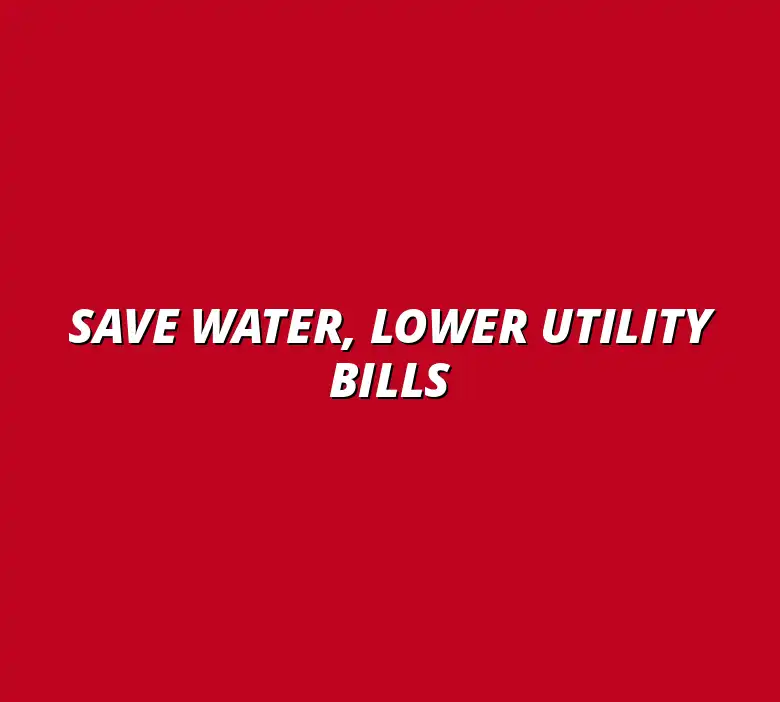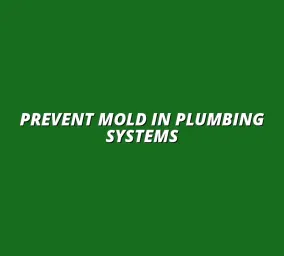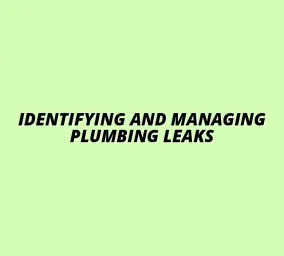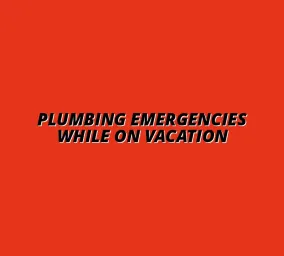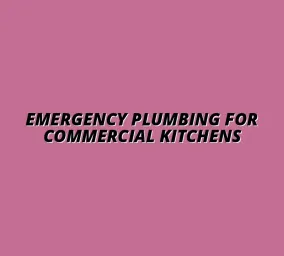Save Water, Lower Utility Bills
Essential Plumbing Tips for Water Conservation
Water conservation is becoming increasingly important in our daily lives. Not only does it help protect our precious natural resources, but it also plays a significant role in reducing your utility bills. By being mindful of our water usage, we can make a positive impact on both our finances and the environment.
Implementing simple plumbing tips can lead to substantial savings over time. Whether you're a homeowner or a renter, taking the initiative to conserve water is not just beneficial—it's essential! Let’s explore how saving water can truly make a difference for your wallet and our planet. For example, learning about water conservation tips specific to bathroom plumbing can significantly impact your water usage.
The Importance of Saving Water and Reducing Utility Bills
Understanding the importance of saving water goes beyond just the financial aspect. With the global water crisis becoming more alarming, every drop counts. By conserving water, we not only lower our bills but also contribute to a sustainable future for the next generations.
Additionally, conserving water can lead to lower energy costs since less energy is required for heating. This means that every time you reduce water usage, you are effectively reducing your overall household expenses. Isn't that great? Regular water heater maintenance is also crucial for efficiency and cost savings.
Understanding the Financial Impact of Water Usage
Water bills can quickly add up if we're not careful. On average, households can waste hundreds of gallons of water each month due to leaks and inefficient plumbing. To see the potential savings, consider the following:
- Identifying leaks and fixing them promptly can save up to 10% on your water bill.
- Upgrading to water-efficient fixtures can lower your monthly costs significantly.
- Practicing mindful water usage habits can further enhance savings over time.
By understanding these financial impacts, you can make informed decisions that benefit both your wallet and the environment! Regular leak checks are essential; find out more about how to save water by preventing leaks.
Environmental Benefits of Water Conservation
Water conservation is crucial for protecting our natural ecosystems. When we save water, we help reduce the strain on local water resources and maintain the health of rivers, lakes, and wetlands. Here are some environmental benefits of conserving water:
- Less water extraction helps sustain aquatic life and habitats.
- Reduced energy consumption lowers greenhouse gas emissions associated with water heating and treatment.
- Minimizing runoff from irrigation can prevent water pollution in nearby bodies of water.
By practicing water conservation, we contribute to a healthier planet, ensuring that future generations can enjoy these resources just as we do!
Identifying Common Plumbing Issues That Waste Water
To effectively conserve water, it's essential to identify plumbing issues that may be wasting it without your knowledge. Many times, these problems are hidden and can go unnoticed until they cause significant damage or increase your utility bills. Here are some common plumbing issues to be aware of:
- Leaky faucets
- Running toilets
- Old or inefficient pipes and fixtures
By being vigilant and addressing these issues promptly, you can significantly reduce water waste and save money in the long run! Installing a water softener can also help prevent many plumbing problems.
Leaky Faucets: The Hidden Water Waster
One of the most common plumbing issues is a leaky faucet. These pesky leaks can waste a surprising amount of water—sometimes even gallons per day! To identify a leaky faucet, listen for dripping sounds and check for water pooling around the sink.
Fixing a leaky faucet often involves replacing the washer or O-ring. Here’s a quick list of steps to tackle this issue:
- Turn off the water supply.
- Remove the faucet handle and unscrew the packing nut.
- Replace the damaged washer or O-ring.
- Reassemble the faucet and turn the water supply back on.
By addressing leaks promptly, you not only save water but also avoid potential damage to your home!
Running Toilets: Causes and Solutions
A running toilet can be another major water waster. It often happens when the flapper valve or flush valve is worn out or misaligned. This issue can waste hundreds of gallons of water each month!
To fix a running toilet, start by checking the flapper valve for any wear and tear. If it looks damaged, replace it immediately. Here’s what to do:
- Turn off the water supply to the toilet.
- Remove the old flapper and install a new one.
- Adjust the chain length to ensure proper sealing.
With a little DIY effort, you can save water and keep your toilet running efficiently!
Pipes and Fixtures: Signs of Inefficiency
Old or damaged pipes can also lead to significant water waste. Look for signs of leaks, such as water stains on walls or ceilings, and be attentive to sudden spikes in your water bill. Here are some signs that your pipes and fixtures may need attention:
- Corroded or rusted pipes
- Frequent clogs or slow drainage
- Low water pressure
If you notice any of these signs, consider scheduling a professional plumbing inspection to address potential issues before they become costly repairs. Taking action now can save you money and conserve water! Knowing the warning signs of a plumbing emergency can also help prevent costly damage and water waste.
Common Questions About Plumbing and Water Conservation
How Can I Detect a Hidden Leak in My Home?
Detecting hidden leaks can be tricky, but it’s essential for conserving water and saving money! One effective method is to check your water meter. Start by turning off all water sources in your home, including appliances, and then take a reading from the meter. After a few hours without using water, check the meter again. If the reading has changed, you likely have a leak.
Another helpful trick is to monitor your utility bill. If you notice an unexplained increase in your water usage, it may indicate a leak. Regularly checking these patterns can help you catch issues early, avoiding further waste and higher bills. Proper maintenance can drastically reduce the chances of unexpected issues. For Birmingham residents, consider contacting a local plumber like Plumb Pro Care in Tyseley, Birmingham.
- Look for damp spots on walls or ceilings.
- Check for mold or mildew growth in unexpected areas.
- Listen for sounds of running water when no taps are on.
What Are the Most Effective DIY Plumbing Fixes for Leaks?
When it comes to fixing leaks, some DIY solutions can be quick and effective! For minor leaks, using plumber’s tape or a pipe sealant can provide a temporary fix. Just be sure to follow the product instructions for the best results.
However, it’s important to distinguish between temporary fixes and long-term solutions. While a quick patch can help you manage a leak for a while, addressing the root cause—like replacing a damaged pipe or fixture—is crucial for preventing future problems. Preventing plumbing issues is key to water conservation; learn more about preventing plumbing issues with water softeners.
- Use epoxy putty for small cracks in pipes.
- Replace worn washers in faucets and showerheads.
- Install a new valve if the existing one is leaking.
Long-Term Benefits of Sustainable Plumbing Practices
Building a Water-Efficient Home: Initial Investments vs. Future Savings
Investing in water-efficient plumbing might seem like a big upfront cost, but the long-term savings can be significant! By choosing fixtures and appliances designed to consume less water, homeowners can reduce their monthly utility bills. Over time, these savings can add up and help offset initial expenses.
Moreover, a water-efficient home can also increase property value. When potential buyers see that you’ve made sustainable choices, they may be more inclined to purchase your home or pay a premium for it. This makes water conservation not only an environmentally friendly choice but a financially savvy one too!
- Low-flow toilets can save up to 13,000 gallons of water a year.
- Water-efficient showerheads can reduce usage by 30%.
- Smart irrigation systems help minimize outdoor water waste.
Creating a Household Water Conservation Plan
Having a water conservation plan is a great way to ensure you're making the most of your efforts! Start by setting realistic goals that fit your family’s lifestyle. Whether it's reducing your monthly water bill by a specific percentage or lowering your overall water usage, having clear objectives can keep everyone motivated.
Involving family members in these goals can make the process more enjoyable and effective. Teach your kids about the importance of saving water and encourage them to take part in conservation efforts. This not only helps reduce usage but also fosters a sense of responsibility within the family!
- Hold family meetings to discuss water-saving tips.
- Assign roles, like checking for leaks or monitoring water use.
- Reward achievements to encourage participation!
Final Thoughts on Reducing Water Usage and Utility Bills
Emphasizing the Importance of Continuous Improvement
Reducing water usage is not a one-time effort; it requires ongoing commitment. Regularly tracking your progress can help you see how far you've come and where you need to improve. Simple practices, like checking your water meter or reviewing your bills, can keep your conservation efforts on track!
Consider setting up a monthly routine to review your water usage and assess your goals. This continuous improvement approach will help you maintain good habits and find new ways to conserve water.
- Create a water usage log to spot trends.
- Adjust your conservation plan based on your findings.
- Share your results with family to keep everyone engaged!
Encouraging Community and Neighborhood Involvement
Water conservation isn't just a personal responsibility; community involvement can amplify your efforts! Sharing tips and ideas with neighbors can foster a supportive environment for everyone to save water. Hosting a community event focused on plumbing and conservation can motivate others to make changes as well.
Consider creating a neighborhood challenge to see who can achieve the greatest reduction in water usage over a month. This friendly competition can lead to new friendships while benefiting the environment!
- Start a community garden with water-efficient practices.
- Share resources like pamphlets on conservation methods.
- Organize workshops on DIY plumbing fixes and upgrades.

